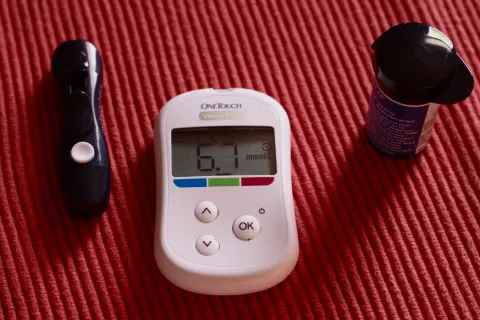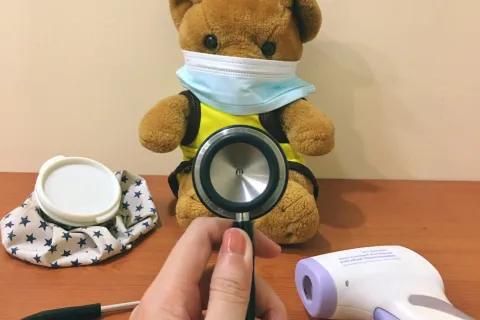How long should we try this behavioral medication?
By Dr. Patricia ManningToday’s answer is from pediatrician Patricia Manning. Dr. Manning specializes in developmental and behavioral issues and directs Cincinnati’s Kelly O’ Leary Center for Autism Spectrum Disorders, a member of Autism Speaks Autism Treatment Network.
We’ve started our child on medication for some very challenging autism-related behaviors. If we’re not seeing change, how long do we keep using it?
How long to keep trying a medication if it isn’t working
Parents of children with autism spectrum disorders make tough decisions every day. One of the toughest can be around how long to keep trying a medication if it isn’t working. Please allow me to back up one giant step to provide perspective on this issue.
As a medical provider, I’ve witnessed – and helped – many families as they struggle with the decision whether or not to start a medication. Families understandably take this decision very seriously. As such, they deserve clear answers about what they should expect from the medication.
- As a physician, the first and most important thing I want families to know is that medication is not a quick fix or even a long-term solution in and of itself. Medication should be an “add-on,” or adjuvant therapy, to address a specific behavior that is getting in the way of a child’s progress. Medication can’t make children “mind” or cooperate. But it can ease certain behaviors related to anxiety or other issues such as attention deficit hyperactivity disorder (ADHD).
- Second, the decision to start or continue medication belongs to the family. Doctors, teachers and therapists may have recommendations and advice. But none of them should be in the “driver’s seat” when it comes to making decisions about medication.
- Third, when we start medication, we’re not committing to life on medication. One of the first questions many parents ask me is, “How long will my child be taking this?”
- My response is: “I don’t know. First, we need to see the response.” The medications we prescribe have been thoroughly evaluated. But every child is different. So we can’t predict with certainty how any one child will respond. We need a test period.
Once a family makes the decision to start medication, they should have a clear idea of what the medication is targeting. Is it behavior stemming from anxiety? ADHD? Obsessive compulsive disorder or sleep difficulties?
Related to this, we want to discuss when to expect improvements – as well as what potential side effects require monitoring.
Create a follow-up plan
I strongly recommend that you and your doctor have a clear follow-up plan. It should include a checklist of steps such as “call in two weeks” and “schedule a medication check visit in one month.” It’s important to remember that some medications can take weeks to demonstrate an effect, while other medications are fairly quick and work within a few days. Your child’s doctor can provide guidance in this regard.
Ideally, this follow-up plan will include monitoring for specific target outcomes such as “anxiety will be reduced by 50 percent as evidenced by [fewer tantrums, fewer nighttime wakenings, etc.]” But please keep in mind that specific outcomes can be difficult to predict for a child with autism.
At the least, family members and medical providers should discuss what they hope to see with medication. This should include a rough timetable of when the medication will be stopped and changed if they see no benefit or do see any significant negative effects. Also make sure you have clear directions for whom to call in case of a related emergency.
If you’re still not seeing improvement after trying three or more medications, the family and medical provider should consider whether you’re targeting the right symptom. I also recommend discussing whether additional or different behavioral therapies might help.
On a related note, some parents have asked me if they should tell their child that they are starting medication. Typically, my response is that if children are old enough to understand they are taking medication, they should be told. For younger children, this is less of an issue.
If a child has difficulty swallowing a pill or taking liquid medication, discuss these issues with your medical provider. We have many strategies for helping children take medication. Nurses and pharmacists, in particular, can be quite ingenious in their ways to make medication more palatable.
For further guidance
I highly recommend that you read the following two medication tool kits developed by Autism Speaks Autism Treatment Network, available for free download from this website:









